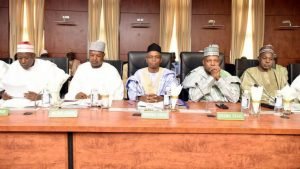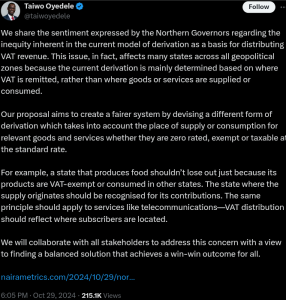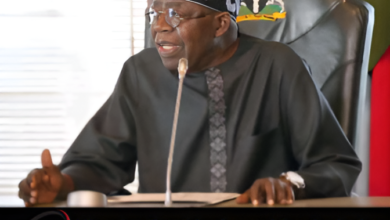Taiwo Oyedele addresses concerns of Northern Governors Forum
Calls for neutral ground on VAT distribution

Newer events regarding Nigeria’s tax reform efforts have seen Taiwo Oyedele, the chairman of the Presidential Fiscal Policy and Tax Reforms Committee, respond to the issues that the Northern Governors Forum had raised about proposed alterations to the VAT distribution structure.
Advertisements
This dialogue exposes regional interest and national fiscal policy conflict, especially with Nigeria’s political economy, inequalities, and the issue of resource mobilization and distribution.
Background on the Tax Reform Bills
In the current fiscal period, President Bola Tinubu’s administration has presented numerous tax reform bills that sought to recast the fiscal framework of the country. These are the Nigeria Tax Bill 2024, Tax Administration Bill, Nigeria Revenue Service Establishment Bill, and the Joint Revenue Board Establishment Bill.
One of the major changes recommended for implementation is changing the distribution formula of the VAT, a proposal that has generated lots of controversies, especially among the Northern governors Forum.
But these bills were recently discussed by the Northern Governors Forum in its recent meeting, in which it achieved a communiqué of discontent. They contended that the adopted formula of dividing the VAT revenues discriminates in favor of the southern states, especially the highly industrialized ones, while discriminating against the northern states, most of which are least industrialized. The chairman of the forum is Governor Muhammad Yahaya of Gombe State, and in giving his stance, he said,
“The contents of the reforms are against the interests of the North and other sub-nationals.”.
Concerns of Northern Governors Forum

The issues that are most important to the Northern Governors Forum are the derivation model that is contained in the tax reform bills. This model recommends that VAT should be collected on a consumption basis instead of the current system that is based on production and companies’ location. The governors posit that this could cause massive exchequer drains for northern states that create or export most VAT Zero-Rated goods or import VAT Zero-Rated consumer products, respectively.
Thus, the governors pointed to equity as to the processes of implementing the national policies, stating that “none of the geopolitical zones should be disadvantaged.” They urged their members in the National Assembly to vote against should-be laws that pose a threat to the lives of their people.
Oyedele’s response to the Northern Governors Forum

Displeased with the Alliance of Northern Governors on this move, Taiwo Oyedele, a chartered accountant, reacted by explaining why the federal government intends to implement the proposed reforms. He recalled the observation made by the governors, especially the Northern Governors, on the injustice of the current model of derivation as a basis for sharing of VAT revenue. According to Oyedele, this current regime that looks at where VAT is paid omits the real place of consumption of the products.
He expounded on the plan for changes, saying,
“The rationale of our proposal is to simulate a fairer regime by introducing a novel form of derivation relating to the place of supply or consumption of relevant goods and services, whether zero-rated, exempted, or standard-rated.”
This approach is in an attempt to make sure that states involved in the production of sensitive products like food do not lose out on their VAT revenues just because the products are consumed in other states.
The call for collaborative integration
Fom Oyedele’s reply, it remains evident that analyzing the distribution of VAT in Nigeria is not as simple as it may seem. He noted that the current one is unfair to many states across the six geopolitical zones of Nigeria and not just the Northern States. He said,
“This issue, in fact, impacts many states across all the geopolitical zones because the current derivation is mostly calculated based on where VAT is paid, not where the products are sold or services rendered are consumed.”
To these ends, Oyedele said the committee is willing to work with all the stakeholders to ensure that a middle ground is found.
He said,
“We will sit with all stakeholders and try to solve this issue with the intention of getting an optimal solution that would benefit all the concerned parties.”
This approach is important when dealing with the sensitive issue of tax reform in Nigeria, especially in addressing the positions of the stakeholders.
The political implications
The North’s rejection of the tax reform bills undermines crucial political challenges for the Tinubu-led administration. As the majority of the northern states dominate the National Assembly, the overall position taken by the northern states could shape the results of the planned reforms. The governors have come out clearly to state that although they are not against the change processes that seek to increase national development, they want the reforms to be fair.
While the debate is still ongoing, the federal government needs to respond to the states’ concerns and start regulating their taxation fairly. The possibility in the National Assembly of division on a North-South basis may obstruct the pursuit of such reforms as could be required in the country’s economic rebuilding and development.
Other articles
- Minister of power promises quick power restoration in Northern Nigeria
- Dangote refinery set to partner with Ghanaian Government
- House of Reps Condemns Lawmaker’s Action, Says Probe ongoing
Conclusion
The continuing debate on the bill to reform VAT laws shows how challenging the task of fiscal policy is in a pluralistic country like Nigeria. When it comes to planning for changes towards making them work for a more equitable taxation system as Taiwo Oyedele and the Presidential Fiscal Policy and Tax Reforms Committee could be planning, then all these stakeholders must be taken into account, especially those from certain geographic regions that may believe they could be wronged by the new fiscal policy.
The opposition of the Northern Governors Forum should be viewed as an important call for increased recognition of regional diversity and the need for equality in implementing the nationwide policies. And as Nigeria contends with her economic crises, the solution that can suit the interests of each region will be significant in the quest to promote unity and wellbeing of the nation.









